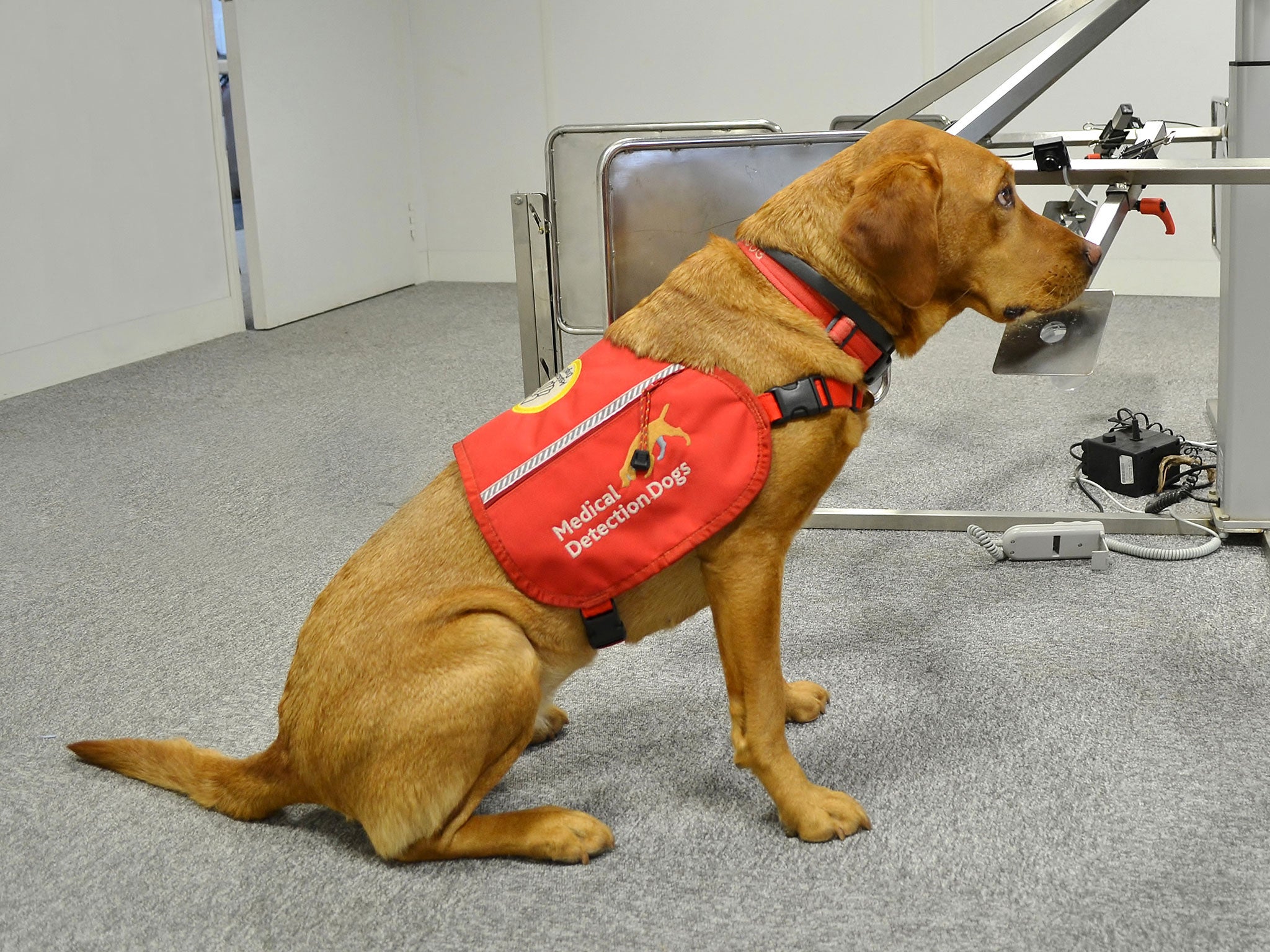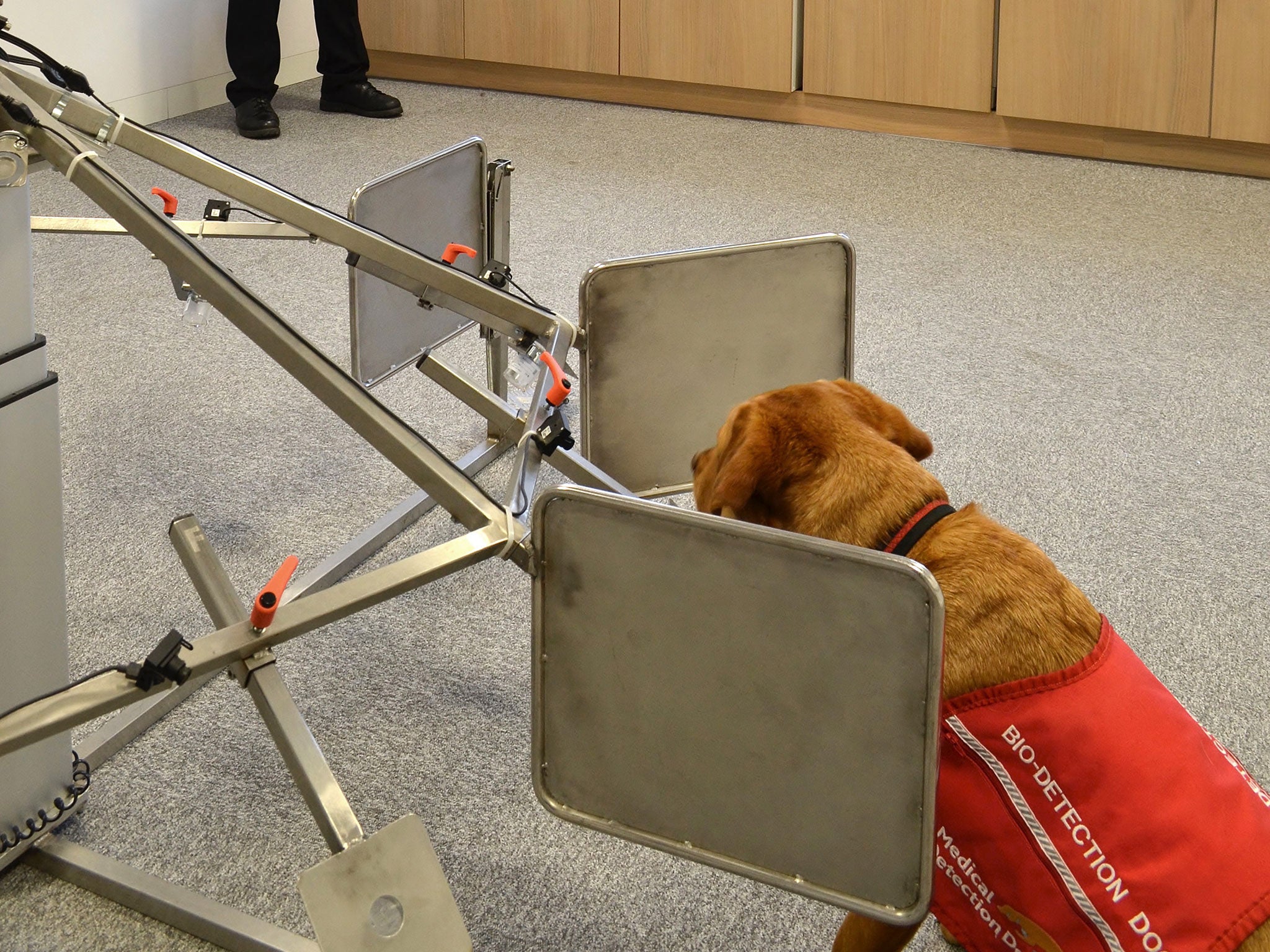Dogs may be able to smell malaria in humans and help with quicker detection, scientists claim
Scientists hope using dogs could revolutionise how malaria is detected, enabling doctors to identify it quickly and without invasive tests

Your support helps us to tell the story
From reproductive rights to climate change to Big Tech, The Independent is on the ground when the story is developing. Whether it's investigating the financials of Elon Musk's pro-Trump PAC or producing our latest documentary, 'The A Word', which shines a light on the American women fighting for reproductive rights, we know how important it is to parse out the facts from the messaging.
At such a critical moment in US history, we need reporters on the ground. Your donation allows us to keep sending journalists to speak to both sides of the story.
The Independent is trusted by Americans across the entire political spectrum. And unlike many other quality news outlets, we choose not to lock Americans out of our reporting and analysis with paywalls. We believe quality journalism should be available to everyone, paid for by those who can afford it.
Your support makes all the difference.Dogs may be able to sniff out malaria through their acute sense of smell, thereby saving thousands of lives through quick and non-invasive detection, scientists have claimed.
The Bill and Melinda Gates Foundation has awarded a grant to commission research into the possibility to scientists at Durham University, Medical Detection Dogs and the London School of Hygiene and Tropical Medicine, along with counterparts in Gambia.
It is hoped the animals may be able to detect odours associated with the condition and which are too subtle to be identified by human smell. Previous research has suggested dogs can be highly accurate in detection cancer in humans.
Steve Lindsay, expert in the development of malaria-control measures in the School of Biological and Biomedical Sciences at Durham University and principle investigator in the project, said: “Recent research has demonstrated that patients infected with the malaria parasite produce specific odours in their breath that disappear after treatment of the parasite. We also know that malaria mosquitoes prefer to feed on malaria patients, which they almost certainly identify by their odour.

“If dogs can be used to identify malaria-infected individuals, they could be used at ports of entry for screening travellers entering areas that are malaria free, but susceptible to re-invasion. Using dogs for detection of parasites has the advantage that it is non-invasive, portable, does not require a laboratory, is fully functional in field settings and can be used to test a high quantity of samples. By using the dogs, we can quickly find and treat those with malaria and thereby hugely accelerating the speed at which we can wipe out this terrible disease altogether.”
Dr Claire Guest, CEO of Medical Detection Dogs which trains animals for medical purposes, said: “Dogs have an extraordinary sense of smell. They can detect parts per trillion; that is equivalent to one spoon of sugar in two Olympic-sized swimming pools. In training trials, they have proven themselves to be 93 per cent reliable at detecting cancer. I feel confident they will learn to detect the odour of malaria.”
In August of last year, the use of medical detection dogs for sniffing out cancer was approved for use in an NHS trial following evidence the animals are highly reliable at detecting the disease in humans.
In 2015, there were an estimated 214 million malaria cases globally and an estimated 438,000 deaths caused by the disease.
Join our commenting forum
Join thought-provoking conversations, follow other Independent readers and see their replies
Comments